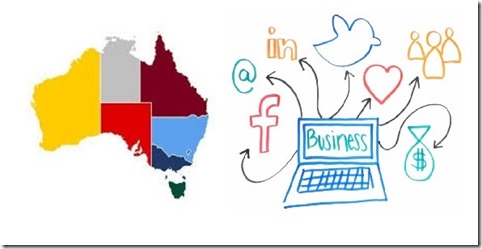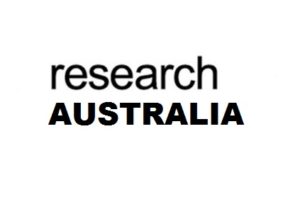It’s a sad fact that the wealthiest 62 people in the world have as much combined wealth as the poorest 3,600,000,000. The image of a business tycoon lording over his employees, exploiting them for their financial game, is not a cartoon – it is a reality.
You can check your ranking here: The Global Rich List
Thankfully the business world is filling up with social entrepreneurs who are making it their mission to make the world a better place. That they can do this while still creating a viable and successful business is inspired. In fact, many business leaders are reaching out and providing investment and creating enterprises to help their fellow human beings lift themselves out of poverty both at home and abroad.
Poverty is Right at Your Doorstep
When you think about poverty, your mind might be brought to sub-Saharan Africa where millions are starving and homeless and sick. And for $1 a day you can help them through a charity of your choice.
Today, there are more than 2.7 billion people living on $2 a day or less, a number which is greater than the total population of the plant in 1950. And while world poverty levels are shrinking, there is still much we can do, we just don’t often know how.
Impact investor and social entrepreneur Mal Warwick and Paul Polak discuss in their book, The Business Solution to Poverty, that efforts to eradicate poverty have only rarely been directed at poor people or the challenges they face, with donations of food and aid being preferred by NGOs and governments as there’s never enough money available for foreign aid or philanthropy to expand successful programs. They believe, like many others that only the private sector has the resources to address the problem of poverty. But, you don’t need to go to Africa, or the Middle East to find people in need, there is pain and suffering right here in Australia.
In the Business of Helping People
Social enterprises are businesses that trade to intentionally tackle social problems, improve communities, provide people access to employment and training, or help the environment. Essentially, innovators taking a business-like approach to solving social problems
The Government entices social businesses through initiatives like the The Social Enterprise Development and Investment Fund (SEDIF) which provides funding to social enterprise. A total of 105 social enterprise projects have been funded to the total value of $73.6 million through the SEDIF.
Alternative finance entrepreneur Shaun McGowan of Lend Capital says – “social entrepreneurialism is the new breed of philanthropy and it is attracting Australia’s top entrepreneurial minds.”
The reason it is becoming such a trend is not only the benefits of helping someone in need; there are several synergies that companies look for when offering support to social entrepreneurs and social businesses:
· A natural fit with the brand; with
· Commercial viability to impress investors and customers; that
· Allows them to flex their creativity; and
· Innovate to create something worthwhile and profitable.
The Social Enterprise Awards
The Social Enterprise Awards are the only national awards for Australian social enterprise. Their aim is to both increase the awareness of social enterprises through their high profiled event.
The awards were established in 2013 and are run by Social Traders, one of Australia’s leading social enterprise organisations. Social Traders, help develop, open markets and provide appropriate capital to social enterprises. Through their social enterprise development products and industry leadership activities they aim to break the cycle of disadvantage and build resilience in Australian communities through social enterprise and create impactful change.
Business Ventures with Indigenous Traditions
It is a sad fact that indigenous people in Australia are the most disadvantaged especially in business ventures – it is not always easy… However, social entrepreneurs, The Tjanpi Desert Weavers (NT) were the winners of the 2016 Social Enterprise Award Women’s Impact Award. Tjanpi was formed in 1995 in Ngaanyatjarra Pitjantjatjara Yankunytjatjara (NPY), to provide indigenous women in the community with culturally appropriate employment on their homelands to better provide for their families.
The NPY Lands are vast stretches of the outback, covering desert lands and is an area of extreme economic disadvantage and geographical isolation for Indigenous communities with very limited prospects for employment. The basket weaving tapped into the traditional natural fibre work the NPY women had long been practicing to create items for daily use and special cultural customs. They embraced the contemporary spin on this traditional practice, creating baskets, vessels and vibrant sculptures using grasses, fibres, feathers and other materials collected from the land. There are now 400 artists ranging in age from early 30s to women in their 70s, operating in 26 communities across 350,000 square kilometres of the NPY lands. Their work is bought and sold by the Tjanpi group and has been included in art exhibitions throughout the world.
The sector is one which is growing and will continue to grow. Organisations like Social Traders and Social Ventures both provide resources to social enterprises, bring focus to them and help business people invest in and create their own social enterprises.
Although eradicating poverty and bettering the world, is a daunting task, through enterprises like the Tjanpi Desert Weavers and others, lives are bettered, people are lifted out of poverty while they are respected and listened to. Which is all any of us want.
About the Author
Charlie Wilson is a freelance writer and small business journalist with a broad range of experience in the Australian start-up scene. Connect with him at Authorflair.com for more insights into Small Business and Entrepreneurialism.







Leave a Reply
You must be logged in to post a comment.